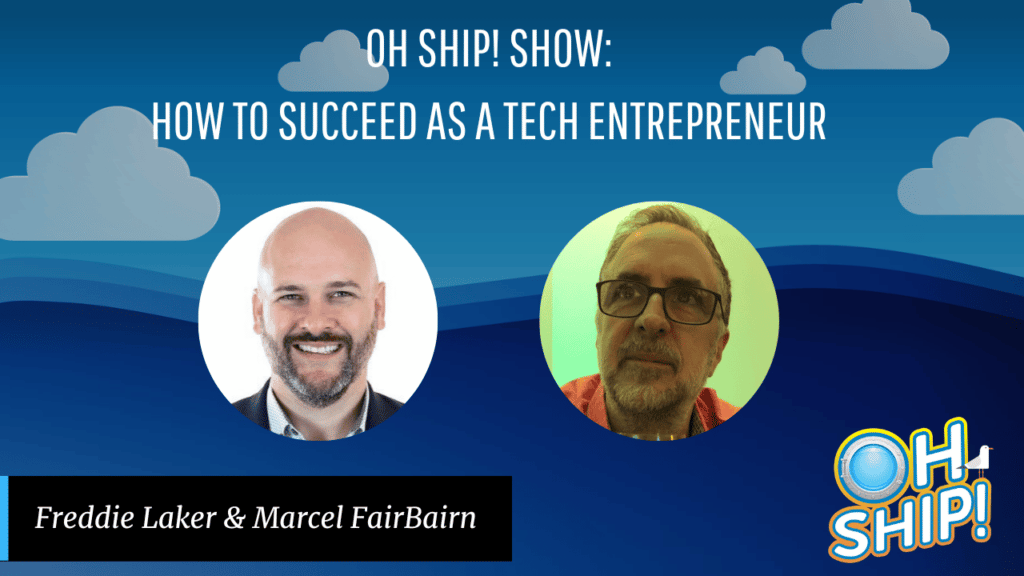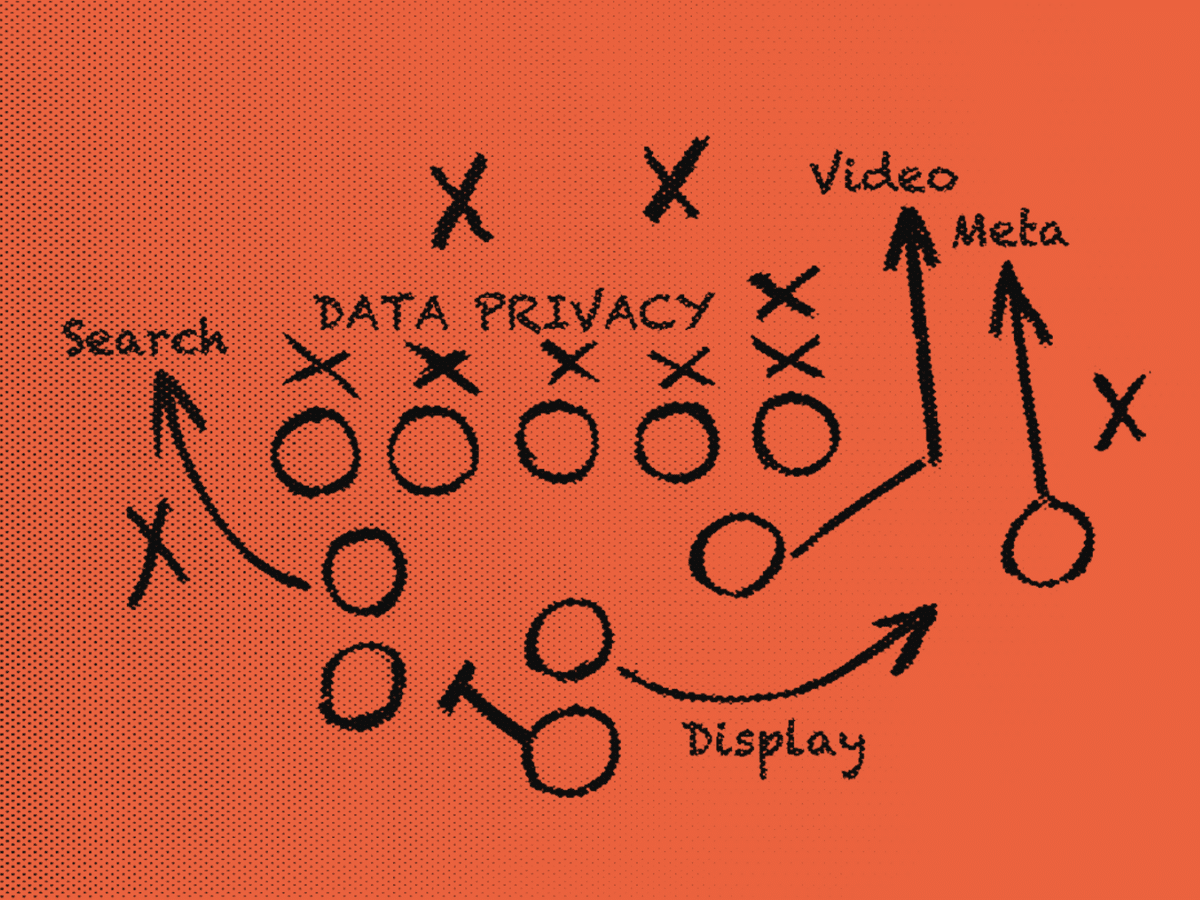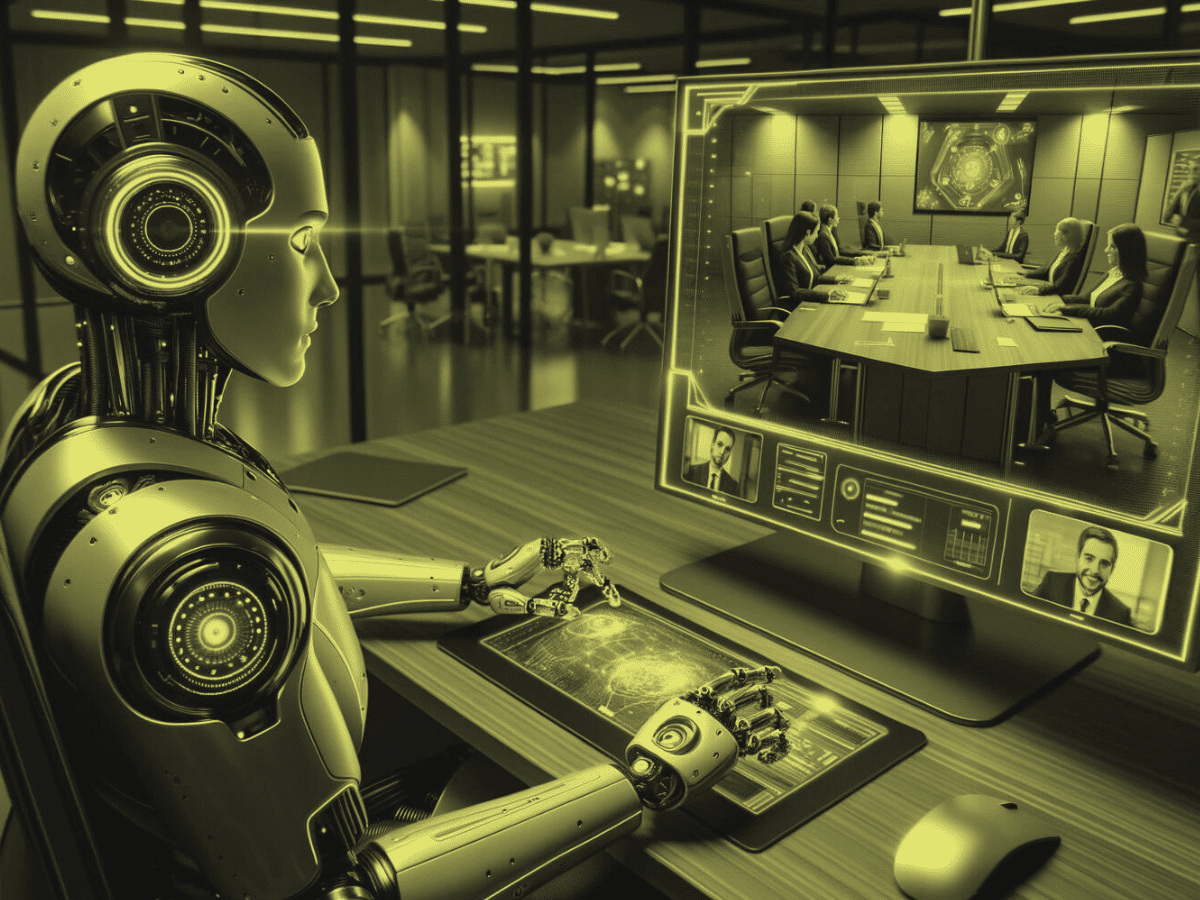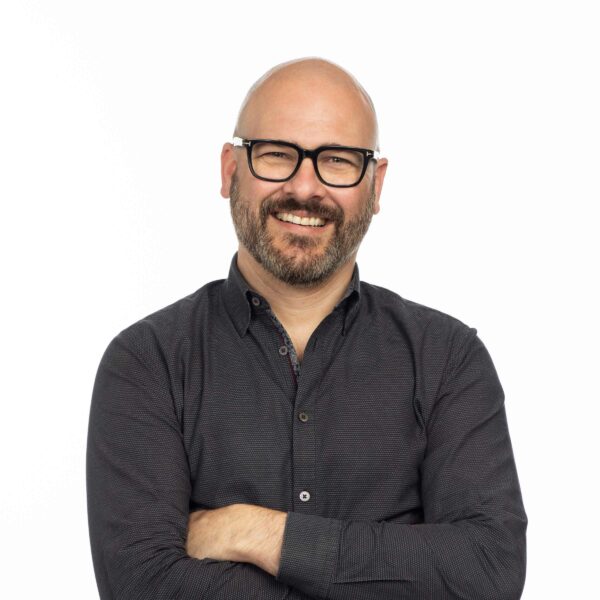Marcel shares key lessons on building tech platforms and staying persistent throughout the journey to success.
In his early years, Marcel started off as a rock ’n roller who developed a passion for concert gear and lighting, then segued into becoming a multifaceted entrepreneur. He’s best known for his creation of GearSource, which is approaching its 20th year. On Oh Ship!, he spoke with us on how to stay persistent about bringing ideas you really believe in to life.
How has he put everything on the line to make an idea a reality?
Marcel has put everything on the line at several points in his career. First (despite getting his start as a musician in a church rock band), he quit school in tenth grade, got a fake ID, and went on the road with a rock band touring taverns and clubs in western Canada.
After realizing his bar tab was bigger than his paycheck, he quit touring and got a job at a music store selling guitars. “What I realized was, I was a really good networker, and I was a pretty good sales guy, and I loved that side of it. I loved being in the business but not on the stage. And that was a great ‘aha!’ moment for me,” he says.
He got offered a better job, then a partnership in another store opening in a different city. But he struggled with being a minority partner. At around 23, he knew he needed to sell his shares and move on. Though getting out proved difficult, it allowed him to find a job he loved working in the commercial sound and lights division of another company. There, he discovered his passion, realizing that lighting plays an incredible role in creating the mood of a space or a show—which leveraged his creativity in a way guitar sales had not. “You can’t be the best live band with the worst light show,” he says, noting that Pink Floyd’s incredible live shows revolved around outstanding gear. This launched a 30-something-year career with lighting at its core, along with sound and other elements.
Marcel also left Canada because it didn’t feel big enough at the time and went to Chicago. And in 2001, he left his high-paying job to strike out on his own. He spent several months considering what to do next.
It was a leap of faith. “I left an industry that was paying me a very good salary for a guy with a ninth-grade education—I was making more than all my friends who had MBAs,” he says. But he’s never been one to start a business on the side while maintaining a salaried job.
“Every step of the way, I’m all in. And to me, that’s sort of the epitome of an entrepreneur,” he says. His approach is, “I’m gonna do whatever it takes to make this work, because I believe in what I’m doing.”
Ultimately, he started GearSource, an idea he planned to test out for six months. Within 12 months, he started earning a salary. In about 18 months, he had matched his previous income.
How did he transition into building technology platforms?
Marcel shares several key parts of his process in starting GearSource.
Setting ground rules
“I had some very strict rules,” Marcel says. First, he wanted to be able to work from either his house in the mountains of Canada or in the Keys, though that was a new concept.
“Rule number two was, I wanted to look big,” he said—even if it was just him sitting in his bedroom. So, he set up creative phone systems that would route people to five or six departments, though all of the calls actually came to him.
Finding a niche
Marcel started listening to CDs about taking a business online by Seth Godin, who told a story about a tiny bird that ate particles off of a hippopotamus’s teeth, benefiting them both. The moral of the story was to find larger companies and solve a problem for them.
“I knew the problem,” he asserts. “At the time, manufacturers had this inventory that was getting pushed further and further back on the shelves as new technology was coming out.” New automated lighting was hitting the market fast. “I wanted to solve manufacturers’ inventory problem.”
So, he designed a marketplace where people can list their used gear—and those who need it can find it. A few months in, one of the world’s largest lighting touring companies asked for his help. When they had a contract with the Stones, they needed to buy $20 million of inventory for a 6-month tour, and they might only use $5 million of it afterward. “Although everyone in this industry knows each other, none of them were connecting in that way to sell their inventory,” Marcel explains, saying it was taboo. They didn’t want to sell inventory to competitors—but they’d let him do it.
Making it scalable
Others would call his company a brokerage, but a brokerage isn’t scalable, he notes. In contrast, they used a system, process, and tools that could scale.
What’s his biggest lesson about building marketplaces?
In an era long before ecommerce software existed, he used a cumbersome piece of software that took the form of a box to start his operation. Then, Freddie helped him get his own platform up and running using ColdFusion, which was cutting-edge at the time.
But don’t get too attached to today’s cutting-edge technology, Marcel advises.
“We always thought we had cutting-edge technology, and we hung onto it too long, ’cause cutting-edge technology was coming in behind it.”
That’s why they’re re-platforming today, even though they did that a couple of years ago. “Don’t ignore technology; in fact, embrace it and make it a big part of what you do,” he says. “Focus on the customer. Focus on the user. Focus in such a crazy, maniacal way on the user experience and the customer and the seller on your site. Don’t take advantage of them because they’ll find a different way to sell their product or to buy their product. … Treat them with love and respect, and do your very best to make it a great user experience.”
Has he ever felt like almost all the odds were against him?
“Almost every day,” he says. “Your job as an entrepreneur and a CEO of an entrepreneurial company is not to count the money; it’s to fix the problems. We are janitors of businesses. We’re there to clean up and fix problems, and to have the ideas that are gonna continue to drive the company forward and gonna keep the company from dying,” he says. “It’s almost like being a parent.” Your job is not to tell them exactly what to do, but to coach them to survive and prosper.
Does he ever go in completely optimistic?
“Honestly, it’s a weird balance,” Marcel says. “You obviously start out with big ambitions and big goals, but I’m never unrealistic. I start out typically thinking I’m gonna go broke, and I think I’m gonna lose everything on this, and prove me wrong.”
At the same time, have people in your corner who will tell you when you have a bad idea. “When you’re a very strong-willed entrepreneur who happens to be smart as well, it’s hard to find people that you trust enough to tell you when you’re going down a deadly path,” he says. “And be willing to listen. That’s the hard part.”
You can’t trust friends and family to tell you when you have a bad idea, by the way. “Your friends and family are there to catch you when you fall, and to make sure you’re safe and protected,” he says. “Entrepreneurialism is not safe and protected.”
What does persistence mean to him?
“Persistence is to me having a clear enough vision that little punches in the side of your head don’t knock you off course. You just keep going in that direction,” he says.
He invented money from GearSource to fund a new business, which was a big mistake. They were growing until 2008 when the economic downturn hit. “Entertainment dollars were one of the first things to not be spent,” he says. “People were cutting back their spending on buying concert tickets or going to nightclubs.” In turn, companies stopped buying equipment.
That was his first big lesson as a CEO, and he lost around $600,000. It caused ripple effects throughout his business, affecting sellers and customers. Of course, when 2020 hit, venues saw business dramatically drop again. But that also brought opportunities for ingenuity—and long-term loans to make them a reality. He used the funds to reinvent his business and go fully into the marketplace world, whereas previously, they’d had more of a buy-and-sell approach.
He’s constantly absorbing new information. “I’m watching for the bumps in the road ahead. I’m watching for the punches in the face,” he says. “I think if you become too obsessed with your idea, you are bordering on arrogance, and you’re probably ignoring the signs at that point.” Obsession is unhealthy, but persistence is crucial. There’s a fine line between them, and every entrepreneur must strike that balance.
Find Marcel on Facebook or LinkedIn. Subscribe and like for more insightful content!









